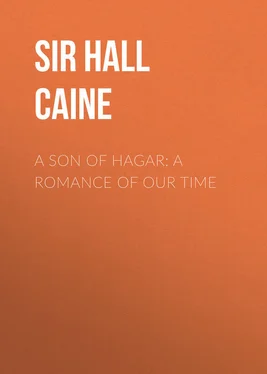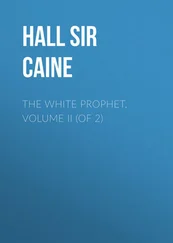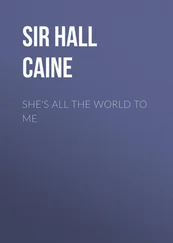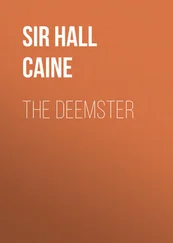Hall Caine - A Son of Hagar - A Romance of Our Time
Здесь есть возможность читать онлайн «Hall Caine - A Son of Hagar - A Romance of Our Time» — ознакомительный отрывок электронной книги совершенно бесплатно, а после прочтения отрывка купить полную версию. В некоторых случаях можно слушать аудио, скачать через торрент в формате fb2 и присутствует краткое содержание. Жанр: foreign_antique, foreign_prose, на английском языке. Описание произведения, (предисловие) а так же отзывы посетителей доступны на портале библиотеки ЛибКат.
- Название:A Son of Hagar: A Romance of Our Time
- Автор:
- Жанр:
- Год:неизвестен
- ISBN:нет данных
- Рейтинг книги:5 / 5. Голосов: 1
-
Избранное:Добавить в избранное
- Отзывы:
-
Ваша оценка:
- 100
- 1
- 2
- 3
- 4
- 5
A Son of Hagar: A Romance of Our Time: краткое содержание, описание и аннотация
Предлагаем к чтению аннотацию, описание, краткое содержание или предисловие (зависит от того, что написал сам автор книги «A Son of Hagar: A Romance of Our Time»). Если вы не нашли необходимую информацию о книге — напишите в комментариях, мы постараемся отыскать её.
A Son of Hagar: A Romance of Our Time — читать онлайн ознакомительный отрывок
Ниже представлен текст книги, разбитый по страницам. Система сохранения места последней прочитанной страницы, позволяет с удобством читать онлайн бесплатно книгу «A Son of Hagar: A Romance of Our Time», без необходимости каждый раз заново искать на чём Вы остановились. Поставьте закладку, и сможете в любой момент перейти на страницу, на которой закончили чтение.
Интервал:
Закладка:
"Some folks are ower much like their namesakes in the Bible," said Gubblum, resuming his pipe.
"Then what for did he say it worn't true as I found young Ritson yesterday morning wet to the skin in the church-yard?" said Job, ignoring the peddler.
"Because he warn't there," said Gubblum.
Job lost all patience.
"Look here," he said, "if you're not hankering for a cold bath on a frosty morning, laal man, I don't know as you've got any call to say that again!"
"He warn't there," the "laal man" muttered doggedly.
The blacksmith had plunged his last heat into the water trough to cool, and a cloud of vapor filled the smithy.
"Lord A'mighty!" he said, laughing, "that's the way some folks go off – all of a hiss and a smoke."
"He warn't there," mumbled the peddler again, impervious to the homely similitude.
"How are you so certain sure?" said Dick of the Syke. "You warn't there yourself, I reckon."
"No; but I was somewhere else, and so was Paul Ritson. I slept at the Pack House in Kezzick night afore last, and he did the same."
"Did you see him there?" said the blacksmith.
"No; but Giles Raisley saw him, and he warn't astir when Giles went on his morning shift at eight o'clock."
The blacksmith broke into a loud guffaw.
"Tell us how he was at the Hawk and Heron in London at midsummer."
"And so he was," said Gubblum, unabashed.
"Willy-nilly, ey?" said the blacksmith, pausing over the anvil with uplifted hammer, the lurid reflection of the hot iron on his face.
"Maybe he had his reasons for denying hisself," said Gubblum.
The blacksmith laughed again, tapped the iron with the hand-hammer, down came the sledge, and the flakes flew.
Two miners entered the smithy.
"Good-morning, John; are ye gayly?" said one of them.
"Gayly, gayly! Why, it's Giles hissel'!"
"Giles," said the peddler, "where was Paul Ritson night afore last?"
"Abed, I reckon," chuckled one of the new-comers.
"Where abed?"
"Nay, don't ax me. Wait – night afore last? That was the night he slept at Janet's, wasn't it?"
Gubblum's eyes twinkled with triumph.
"What, did I tell you?"
"What call had he to sleep at Keswick?" said the blacksmith; "it's no'but four miles from his own bed at the Ghyll."
"Nay, now, when ye ax the like o' that – "
Tom, the postman, stopped his grindstone and snuckered huskily:
"Maybe he's had a fratch with yon brother – yon Hugh."
"I'm on the morning shift this week, and Mother Janet she said: 'Giles,' she said, 'the brother of your young master came late last night for a bed.'"
"Job, what do you say to that?" shouted the blacksmith above the pulsating of the bellows, and with the sharp white lights of the leaping flames on his laughing face.
"Say! That they're a pack of liars!" said the mason, catching up his untempered chisels and flinging out of the smithy.
When he had gone, Gubblum removed his pipe and said calmly: "He's ower much like his Bible namesake in temper – that's the on'y fault of Job."
The parson, in the field outside, had stood in the turn-rows, resting on his plow-handles. He had been drawling "Bonny lass, canny lass;" but, catching the sound of angry words, he had paused and listened. When Job, the mason, flung away, he returned to his plowing, and disappeared down the furrow, the boy whistling at his horse's head.
"Why, Mattha, it is thee?" said the blacksmith, observing for the first time the second of the new-comers; "and how fend ye?"
"Middling weel, John, middling weel," said Matthew, in a low voice, resting on the edge of the trough.
It was Laird Fisher, more bent than of old, with deeper lines in his grave face and with yet more listless eyes. He had brought two picks for sharpening.
"Got your smelting-house at wark down at the pit, Mattha?" asked the blacksmith.
"Ey, John, it's at wark – it's at wark."
The miller had turned to go, but he faced about with ready anger.
"Lord, yes, and a pretty pickle you and your gaffer's like to make of me. Wad ye credit it, John? they've built their smelting-house within half a rod of my mill. Half a rod; not a yard mair. When your red-hot rubbish is shot down your bank, where's it going to go, ey? That's what I want to know – where's it going to go?"
"Why, into your mill, of course," said Gubblum, with a wink, from the tool-chest. "That'll maybe help you to go by fire when you can't raise the wind."
"Verra good for thee, Gubblum," laughed the blacksmith.
"I'll have the law on them safe enough," said the miller.
"And where's your damages to come from?"
"From the same spot as all the rest of the brass – that's good enough for me."
Matthew's voice followed the insinuating guffaw.
"I spoke to Master Hugh yesterday. I telt him all you said about a wall."
"Well?"
"He won't build it."
"Of course not. Why didsta not speak to Paul?"
"No use in that," said Matthew, faintly.
"Nay, young Hugh is a gaffer," exclaimed the blacksmith.
"And Paul has no say in it except finding the brass, ey?"
"I mak' no doubt as you're reet, Dick," said Matthew, meekly.
"It's been just so since the day auld Allan died," said the blacksmith. "He hadn't been a week in his grave before Hugh bought up Mattha's royalty in the Hammer Hole, and began to sink for iron. He's never found much ore, as I've heard tell on, but he goes ahead laying down his pumping engines, and putting up his cranes, and boring his mill-races, just as if he was proper-ietor of a royal mine."
"Hugh is the chain-horse, and Paul's no'but the mare in the shafts," said Gubblum.
"And the money comes somehow," said Tom o' Dint, who had finished the knife and was testing its edge in whittling a stick.
Matthew got up from his seat.
"I'll come again for the picks, John," he said quietly; and the old man stepped out of the bright glow into the chill haze.
"Mattha has never been the same since laal Mercy left him," said the blacksmith.
"Any news of her?" asked the peddler.
"Ax Tom o' Dint; he's the postman, and like to know if anybody in Newlands gets the scribe of a line from the wench," said the miller.
Tom shakes his head. "You could tell summat, an' you would, ey, Tom?" said the blacksmith, showing his teeth.
"Don't you misliken me," said the rural messenger in his husky tones; "I'm none of your Peeping Toms." And the postman drew up his head with as much pride of office as could be assumed by a gentleman of bowed legs and curtailed stature.
"It baffles me as Mattha hisself could make nowt of his royalty in the Hammer Hole, if there was owt to make out of it," said the miller from the gate, buttoning his coat up to his ears.
"I've heard as he had a mind to try his luck again," said Giles Raisley.
"Nay, nay, nowt of the sort," said the blacksmith. "When the laal lass cut away and left the auld chap he lost heart and couldn't bear the sight of the spot where she used to bide. So he started back to his bit place on Coledale Moss. But Hugh Ritson followed him and bought up his royalty – for nowt, as they say – and set him to wark for wage in his own sinking – the same that ruined the auld man lang ago."
"And he's like to see a fortun' come out of it yet," said Giles.
"It won't be Mattha's fortun', then."
"Nay, never fear," said the miner.
Gubblum shook the ashes out of his pipe, and said meditatively, "Mattha's like me and the cuckoo."
"Why, man, how's that?" said the blacksmith, girding his leather apron in a band about his waist. A fresh heat was in the fire; the bellows were belching; the palpitating flames were licking the smoky hood. A twinkle lurked in the blacksmith's eye. "How's that?" he repeated.
"He's allus stopping short too soon," said Gubblum. "My missis, she said to me last back end, 'Gubblum,' she said, 'dusta mind as it's allus summer when the cuckoo is in the garden?' 'That's what is is,' I said. 'Well,' she said, 'dusta not think it wad allus be summer if the cuckoo could allus be kept here?' 'Maybe so,' I says; 'but easier said nor done.' 'Shaf on you for a clothead!' says she; 'nowt so simple. When you get the cuckoo into the garden, build a wall round and keep it in.' And that's what I did; and I built it middling high, too, but it warn't high enough, for, wad ye think it, one day I saw the cuckoo setting off, and it just skimmed the top of that wall by a bare inch. Now, if I'd no'but put another stone – "
Читать дальшеИнтервал:
Закладка:
Похожие книги на «A Son of Hagar: A Romance of Our Time»
Представляем Вашему вниманию похожие книги на «A Son of Hagar: A Romance of Our Time» списком для выбора. Мы отобрали схожую по названию и смыслу литературу в надежде предоставить читателям больше вариантов отыскать новые, интересные, ещё непрочитанные произведения.
Обсуждение, отзывы о книге «A Son of Hagar: A Romance of Our Time» и просто собственные мнения читателей. Оставьте ваши комментарии, напишите, что Вы думаете о произведении, его смысле или главных героях. Укажите что конкретно понравилось, а что нет, и почему Вы так считаете.

![Михаил Лермонтов - A Hero of Our Time [New Translation]](/books/27671/mihail-lermontov-a-hero-of-our-time-new-translati-thumb.webp)










